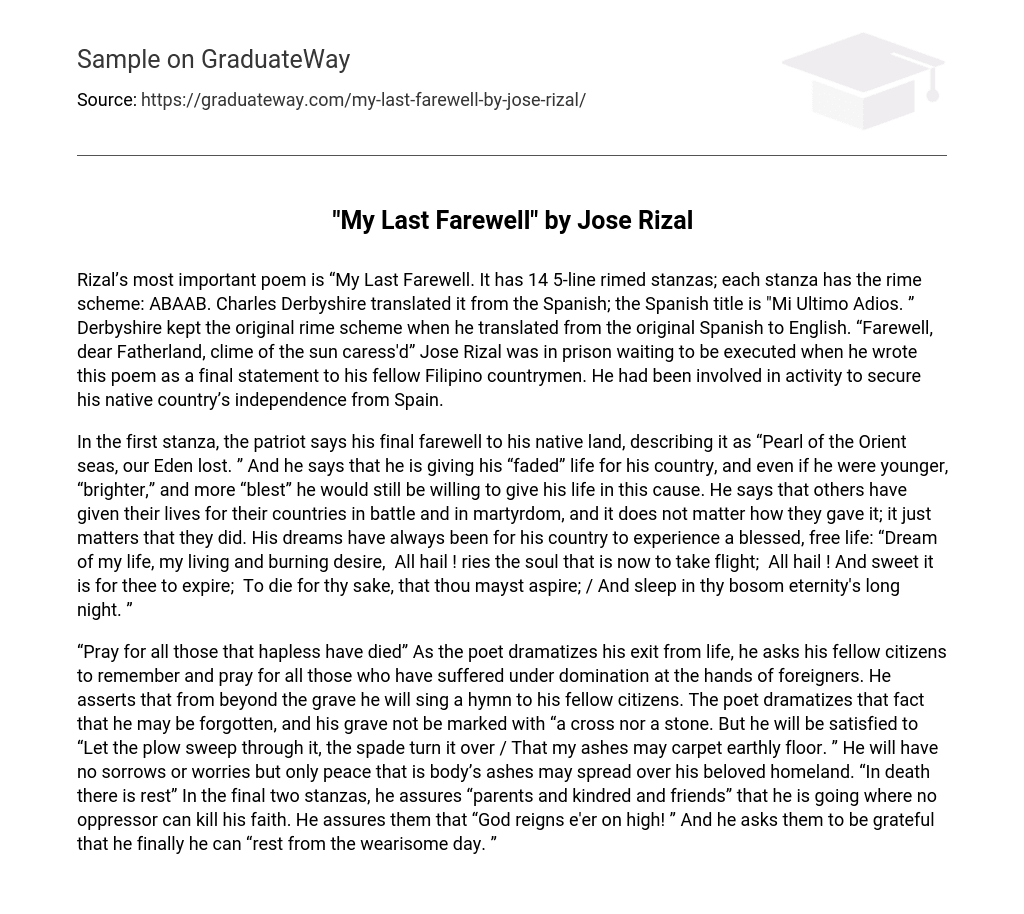Rizal’s most important poem is “My Last Farewell. It has 14 5-line rimed stanzas; each stanza has the rime scheme: ABAAB. Charles Derbyshire translated it from the Spanish; the Spanish title is “Mi Ultimo Adios. ” Derbyshire kept the original rime scheme when he translated from the original Spanish to English. “Farewell, dear Fatherland, clime of the sun caress’d” Jose Rizal was in prison waiting to be executed when he wrote this poem as a final statement to his fellow Filipino countrymen. He had been involved in activity to secure his native country’s independence from Spain.
In the first stanza, the patriot says his final farewell to his native land, describing it as “Pearl of the Orient seas, our Eden lost. ” And he says that he is giving his “faded” life for his country, and even if he were younger, “brighter,” and more “blest” he would still be willing to give his life in this cause. He says that others have given their lives for their countries in battle and in martyrdom, and it does not matter how they gave it; it just matters that they did. His dreams have always been for his country to experience a blessed, free life: “Dream of my life, my living and burning desire, All hail ! ries the soul that is now to take flight; All hail ! And sweet it is for thee to expire; To die for thy sake, that thou mayst aspire; / And sleep in thy bosom eternity’s long night. ”
“Pray for all those that hapless have died” As the poet dramatizes his exit from life, he asks his fellow citizens to remember and pray for all those who have suffered under domination at the hands of foreigners. He asserts that from beyond the grave he will sing a hymn to his fellow citizens. The poet dramatizes that fact that he may be forgotten, and his grave not be marked with “a cross nor a stone. But he will be satisfied to “Let the plow sweep through it, the spade turn it over / That my ashes may carpet earthly floor. ” He will have no sorrows or worries but only peace that is body’s ashes may spread over his beloved homeland. “In death there is rest” In the final two stanzas, he assures “parents and kindred and friends” that he is going where no oppressor can kill his faith. He assures them that “God reigns e’er on high! ” And he asks them to be grateful that he finally he can “rest from the wearisome day. ”





